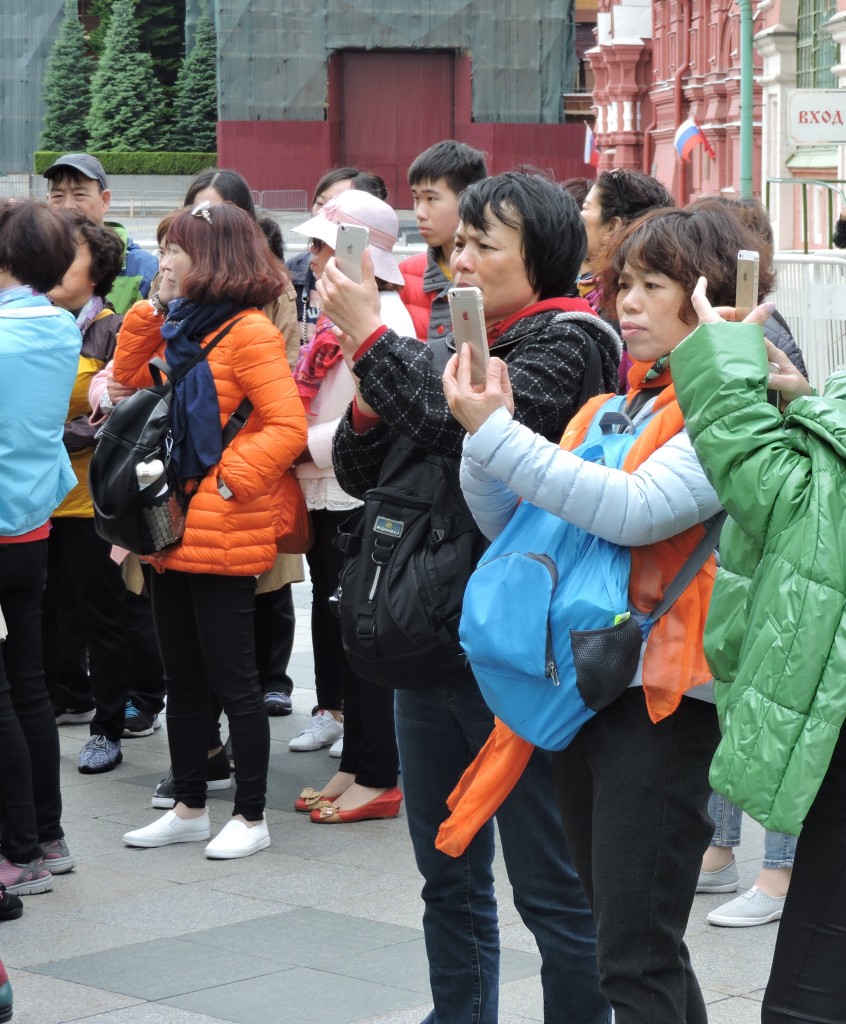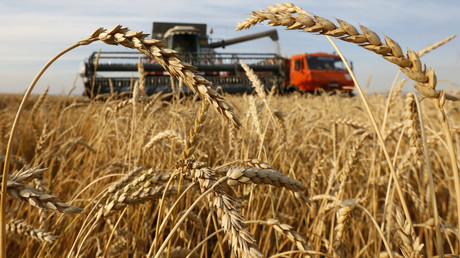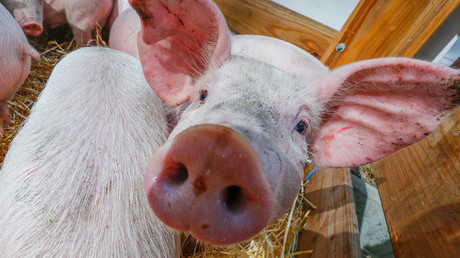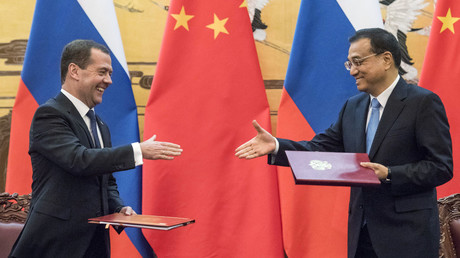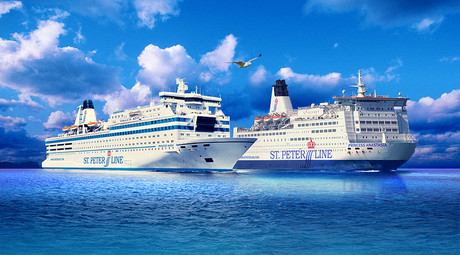Klaus Hart Brasilientexte
Aktuelle Berichte aus Brasilien – Politik, Kultur und Naturschutz
Rußland-Wirtschaft 2016:“Russia strengthens position on global food market“. Krim-Boom, Jalta-Boom 2016.
Russia strengthens position on global food market/RT
Rußland 2016 – Fotoserie:http://www.hart-brasilientexte.de/2016/07/11/russland-2016-menschen-gesichter-moskau-die-jetzt-nazifreie-krim-fotoserie-kuriose-informationsblockade-westlicher-medien-gegen-russland-volksempfaenger-journalismus/
Chinesischer Massentourismus in Rußland – Juni 2016, Blumenstadt Moskau.
Die Krim 2016. Der Boom nach dem Anschluß an Rußland, die Facetten. Fotoserie:
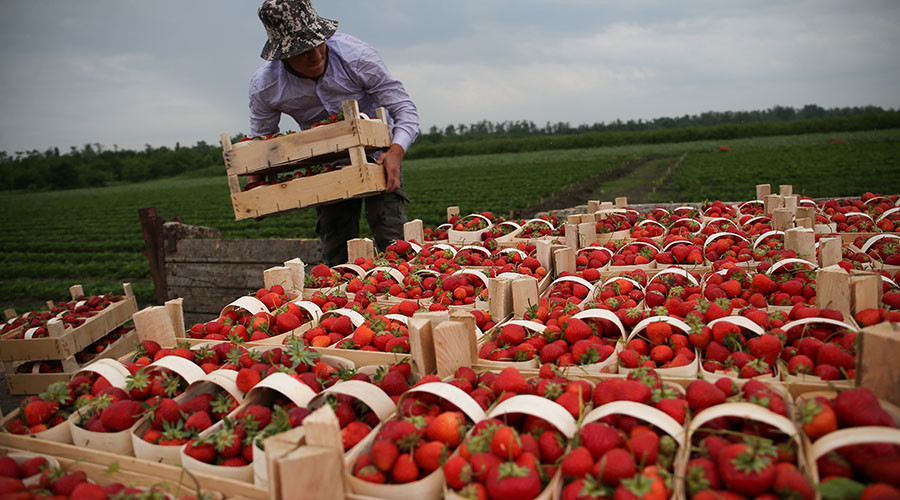
„Russia is successfully regaining the status of a major supplier on the global food market,“ said Medvedev, adding it has been achieved due to effort by the government, industry associations, and farmers.
He also said there has been unprecedented in its size state support for the agricultural sector.
“The government has provided 215 billion rubles ($3.3 billion) for the development of the agricultural sector,” said the head of government.
According to Medvedev, everything has been done to transform agriculture from import to export, and that the “Russian market reached a such a quality that domestic and foreign consumers could chose Russian products without hesitation.”
Following Western sanctions and Russia’s food embargo two years ago, the Prime Minister said the country would pursue a policy of import substitution which could boost domestic agriculture. This would give Russian farmers a unique opportunity to replace imported goods with their own produce.
Western sanctions were a “dead-end track”, but Russia has been forced to respond to the measures taken by Western countries, Medvedev said at the time.
Russia was listed as the world’s ninth largest food manufacturer in 2013, and has reduced imports by nearly 40 percent to $26.5 billion from two years ago, according to government data.
The country is expected to become the world’s largest wheat exporter this year, outpacing Canada and the US. Russian wheat exports are set for a record 23.5 million metric tons.
According to Russian Agriculture Minister Aleksandr Tkachev, agriculture may soon become the country’s second biggest export after energy.
China invests $2.4bn in Russian Far East/RT

“The volume of investments to the region has already reached 1.1 trillion rubles ($17.1 billion) as a result of new Far East development mechanisms, such as the Advanced Development Territories [ADT – Ed.], the Vladivostok free port area, the Far East Development Fund and targeted infrastructural project support. Those mechanisms are popular with Chinese businesses who had already invested 163 billion rubles ($2.4 billion),” Galushka said in a ministry statement.
According to the minister, Chinese firms have invested in a cement plant and plan investing in an oil refinery in the Amur Region, as well as working in the Sakha Republic and Primorsky Territory ADTs. The Chinese are key investors in the new Amuro-Khinganskaya ADT in the Jewish Autonomous Region, providing some 10 billion rubles ($157 million) in funds.
READ MORE:China begins construction of Power of Siberia pipeline for gas delivered from Russia
Over seven billion rubles ($109 million) has been invested in a timber plant in the Khabarovsk region. About ten projects worth 80 billion rubles ($1.2 billion) generated by a joint Russian-Chinese agro-industrial development fund are ready for investment, and will be presented at the Eastern Economic Forum in September, Galushka said.
An unnamed source at the Russian Far East Development Ministry told Sputnik news agency in May that more than 31 agreements had been signed with Chinese companies.
Russian and Chinese firms have a number of projects in Russia’s Far East in energy, trade and cross-border tourism. The biggest of them is the Power of Siberia pipeline which is to deliver 38 billion cubic meters of Russian natural gas to China annually. Russian Prime Minister Dmitry Medvedev has described the pipeline the world’s biggest infrastructure project.
Cooperation in developing the sparsely populated but resource rich territory is one of the major points of interest between the two countries.
« Tröglitz 2016: Polizei sucht nicht mehr nach Täter, laut Medien – was war da los hinter den Kulissen? Der Fall Sebnitz, der Fall Khaled in Dresden…“Tröglitz: Polizei gibt auf”. (Dichtung oder Wahrheit?) – Der völkerrechtswidrige Irak-Krieg, das Kriegsbündnis NATO, die Position von Angela Merkel, die Chilcot-Kommission 2016. „Tony Blair ist ein Kriegsverbrecher“. Was alles im gesteuerten deutschen Mainstream zum Thema fehlt…Schuldige des unter Lügenvorwänden von NATO-Staaten begonnenen Irakkriegs – rd. 1,5 Millionen Tote – immer noch nicht von Kriegsverbrechertribunal in Den Haag abgeurteilt. Die Parallelen zum NATO-Stellvertreterkrieg in Syrien. Oligarchin Timoschenko(„Russen abschlachten“) – Freundin von Angela Merkel…Die Krim 2016 – Fotoserie. »
Keine Kommentare
Noch keine Kommentare
Die Kommentarfunktion ist zur Zeit leider deaktiviert.
NEU: Fotoserie Gesichter Brasiliens
Links zum Thema Ukraine
Fotostrecken Wasserfälle Iguacu und Karneval 2008
interessante Links
Seiten
Ressorts
- Kultur (6.975)
- Naturschutz (1.101)
- Politik (12.729)
Suchen
RSS-Feeds
Verwaltung
